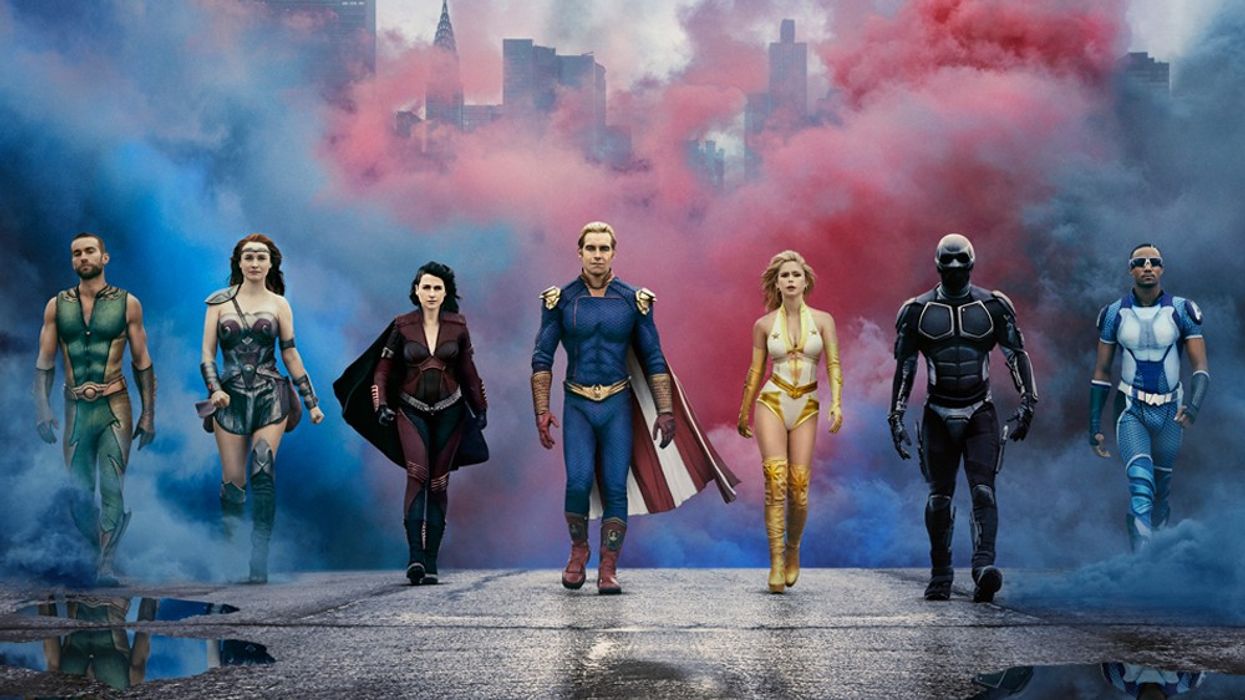How 'The Boys' Exposes What's Wrong with Superhero Culture
In a world where superhuman powers combine with a healthy dose of capitalism, the dark underbelly of our love for superheroes is exposed.

The Boys, a show providing a realistic take on how superheroes would be integrated into our current society, debuted on Amazon Prime in the summer of 2019 to critical acclaim and to millions of viewers. It easily bumped its way up in streaming numbers to become one of Amazon’s flagship shows and secured itself a ticket to as many seasons as it can handle in the future.
So what made The Boys rise so fast into our current zeitgeist? Maybe it was our endless thirst for hero content that drove us to open up that first episode.
Well, I think the endless stream of movies and television that revolves around superheroes is what led us into craving something different. Something that opened our eyes to what we have been taught about superheroes and made us rethink how society would look if there were actually people with superhuman powers among us—and it’s not as pretty as you think.
Check out the analysis in this video from The Take, then let's get into the main takeaways.
The Commodification of Superpowers
Where there is power, that power will always be commodified. Whether it is a waterfall manipulated to create usable energy or a nuclear warhead capable of leveling an entire city, there will always be a capitalist enterprise behind whatever commodity is raking in the dough and leveraging their own type of power.
In The Boys, that commodity is the superhero, or “supe." The bankroller? A company called Vought Industries—a Disney-type company that harnesses the power of superheroes and turns it into a pool of money by creating movies, theme parks, and even a para-police (and eventually military) force entirely centered around their gilded heroes.
In our current understanding of superheroes defined by movies, comics, and TV, heroes work on their own, until they decide to team up together of their own volition in an epic fashion. They are universally loved until they aren’t (but they always win back the public by saving a bus of orphans falling off of the George Washington Bridge, or whatever).
But we all know that in our current world, that stuff just doesn’t happen on its own. There’s always a team behind every decision curating and managing every detail of perception.
Vought Industries, just like any other major corporation, utilizes marketing and public relations to create an image they display to the world. This is a driving factor in the decisions many of the supes make in The Boys, whether it’s Homelander committing horrendous war crimes that spit in the face of the Geneva Convention and playing it off as “protecting America,” or the more relatable characters such as Queen Maeve and Starlight rebelling internally against their corporate-created image.
This is where The Boys differs from the other superhero-related content—they show that the heroes we love may be sociopathic killers with no regard for human life, but with a little PR and some creative cover-ups, we would be none the wiser of their true selves.
The company has to protect its assets, after all. Gotta keep those stockholders happy.

The Realistic Fallout of Superheroes’ Actions
If you lived in the Marvel Cinematic Universe, and your girlfriend was accidentally Hulk-smashed into oblivion due to an unfortunate judgment of character by Bruce Banner, would you expect legal recourse? Well, probably not.
There’s a small little problem in superhero universes that I attribute to the "NPC (Non-Playable Character) Fallacy." All civilians that are not directly involved with the story of the hero are immediately dismissed from any emotion except fear and love. Oh, your downtown apartment building was absolutely decimated by Thor’s hammer? Too bad.
That’s where The Boys differs from all other superhero universes.
Hughie, one of the main characters in the semi-villain group (depending on your definition), is basically an NPC character come to life after his girlfriend is obliterated by A-Train, The Boys’ version of the Flash. We get to go into the pain and suffering of a normal civilian that is wronged by the supes, and for good reason.
In The Boys, there is actual fallout due to the supes' actions. Instead of worlds where a mistake is overlooked to further the main story, the mistakes of superheroes are explored through characters who would otherwise be ancillary. Now they work against the superheroes to exact revenge as well as morally fight against objectively faulted "heroes."
So What’s Wrong With Superhero Culture?
Now obviously, superhero movies are fun. This is coming from someone who’s read comics and watched as much MCU content as they could get their hands on. But The Boys opened my eyes to the glaring faults displayed in the current cinematic universes of heroes we have available to us.
Heroes are often displayed as perfect specimens who ultimately want to save the world and uphold good over evil. But when absolute power is placed within the hands of an individual, that power absolutely has the grip to turn anyone bad. While our favorite heroes will ultimately choose good in most circumstances, the power complex is often given to the villain as the foil.
What makes The Boys different is that it adds a human element to a world where superheroes live among all of us mortal beings. It doesn’t make other hero universes wrong but shows us what it would really be like living with—well, essentially—gods.
And as I said, it’s definitely not pretty.
Source: The Take

 "'Back Home"via Mercedes Arutro
"'Back Home"via Mercedes Arutro 'Back Home'via Mercedes Arutro
'Back Home'via Mercedes Arutro 









